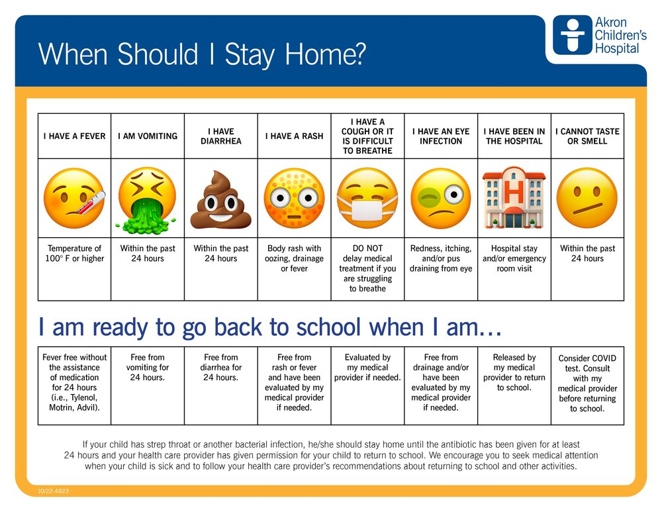In the United States, most schools require students to attend at least 180 days of school each year. However, many students miss school for a variety of reasons, including illness, family vacations, and personal days. So how many days of school can a student miss before it becomes a problem?
How Many Days Of School Can You Miss?
If you’re a student in the United States, you’re probably used to hearing “Don’t miss school!” But how many days of school can you actually miss before it becomes a problem? from your parents, teachers, and other adults.
However, if a student misses more than 10 days, they may be held back a grade or be required to attend summer school. In most states, students are allowed to miss up to 10 days of school per year without any consequences.

So, if you’re considering skipping school, make sure you won’t be missing more than 10 days. Otherwise, you may end up having to make up for it in the long run!
How many days of school can you miss in high school?
After 10 days, you will start to accumulate absences. And so on. If you miss 10 days, you will have a 95% in the class. You can miss up to 10 days of school in high school without any penalties. Each absence will result in a loss of 0.5% of your final grade. So, if you have perfect attendance, you will have a 100% in the class.
How many days of school can you miss in middle school?
However, if you miss more than 10 days, you may be held back a grade or receive other penalties. In middle school, you can miss up to 10 days of school without any penalties.
How many days of school can you miss in elementary school?
However, if you miss more than 3 days, you may be held back a grade. In elementary school, you can miss up to 3 days of school without any sort of punishment.
Reasons To Miss School
There are a variety of reasons why students may miss school. Some students may miss school due to bullying or other safety concerns. Others may have a mental health condition that causes them to miss school. And finally, some students may simply prefer not to attend school. Some students may have chronic health conditions that require them to miss school frequently.
Excused Absence From School
There are many reasons why a student may need to miss school. Some reasons are more serious than others, but all reasons should be considered before making a decision to miss school.
These reasons can include: Some reasons for missing school are more serious than others and may require a doctor’s note.
-Illness: If a student is too ill to attend school, a doctor’s note may be required.
-Injury: If a student is injured and cannot attend school, a doctor’s note may be required.
-Mental Health: If a student is dealing with a mental health issue and cannot attend school, a doctor’s note may be required.
-Death in the Family: If a student’s family member has died, they may be excused from school with a note from a parent or guardian.

Some reasons for missing school may not require a doctor’s note, but should still be considered before making a decision to miss school. These reasons can include:
-Family Vacation: If a family is going on vacation, a student may miss school. However, it is important to note that many schools have policies in place regarding vacations during the school year.
However, it is important to note that many schools have policies in place regarding religious obligations during the school year. -Religious Obligations: If a student has a religious obligation that conflicts with school, they may miss school.
However, it is important to note that many schools have policies in place regarding personal issues during the school year. -Personal Issues: If a student is dealing with personal issues that make it difficult for them to attend school, they may miss school.
Unexcused Absence From School
Others may have a family emergency that requires them to miss school. Still others may simply choose to skip school for personal reasons. There are many reasons why students may have an unexcused absence from school. Some students may have a medical condition that prevents them from attending school on a regular basis.
Whatever the reason, an unexcused absence from school can have serious consequences. And finally, the student may be expelled from school entirely. First, the student may receive a lower grade in the course because they missed important class time. Second, the student may be suspended from school for a period of time.

Some schools may be more lenient than others when it comes to unexcused absences. It is important to note that each school has its own attendance policy. However, it is always best to err on the side of caution and make sure that any absences from school are excused.
What Is Truancy?
Truancy is defined as an unauthorized absence from compulsory education. It is an offense under the Education Act 1996 to fail to attend school without good reason and is punishable by a fine of up to £120. In England, parents can be prosecuted if their child has 15 or more unauthorised absences from school in a term, or 10 or more in a row.
What is a truancy officer?
A truancy officer is an individual who is responsible for ensuring that students attend school and do not engage in truancy, or unauthorized absence from school. In other cases, the truancy officer may simply issue a warning or citation to the student’s parents or guardians. In some cases, the truancy officer may be responsible for investigating the reasons for a student’s truancy and providing support to the student and their family to help resolve the issue.
Do I need a lawyer for truancy court?
An attorney can also help you negotiate with the prosecutor and, if necessary, represent you at trial. If you are facing truancy charges in court, it is strongly recommended that you seek legal counsel. An attorney can help you navigate the court process, understand the charges against you, and develop a defense strategy.
Truancy Consequences For Parents
Truancy consequences for parents can include a loss of custody of their child, a fine, or even jail time. In some states, parents can be held responsible if their child is chronically truant, meaning they miss a certain number of days or weeks of school.
How To Get Out Of Truancy Charges
It is a legal offense in many jurisdictions and can result in a fine or even jail time. Truancy is defined as an unauthorized absence from compulsory education. In other states, parents may not be held responsible for their child’s truancy. In some states, truancy laws require parents to be notified and may even require them to attend a meeting with school officials.
If you are absent, be sure to have a valid excuse, such as a doctor’s note. The most obvious is to simply attend school. However, this is not always an option. In some cases, you may be able to make up missed work and avoid truancy charges. There are a number of ways to avoid truancy charges.
These programs typically involve meeting with a truancy officer, attending counseling, and completing community service. If you successfully complete the program, your truancy charges will be dismissed. If you are facing truancy charges, you may be able to get them dismissed by completing a truancy diversion program.

Truancy charges can have serious consequences, so it is important to take them seriously. If you are facing truancy charges, be sure to talk to a lawyer to understand your options and ensure that you are taking the best course of action.
What Does Tardies Mean In School?
This can be for a variety of reasons, such as sleeping in, missing the bus, or getting stuck in traffic. Regardless of the reason, being tardy to class can have consequences. Tardies in school typically mean that a student is late to class. For example, some schools may give students a detention or require them to make up the time missed.
How many tardies make an absence?
In some schools, tardies are not counted as absences, but they may still result in a student being punished. This means that if a student is late to school, it is the same as if they were not in school at all. In most schools, tardies are counted as absences.
Do colleges look at tardies?
After that, the student may be subject to disciplinary action, which could include a meeting with the school’s administration. Most schools start counting tardies after the student has been late three times. In some cases, the student may be required to serve detention or may be suspended from school. Tardies mean arriving late to school. The student’s parents may also be notified.

Tardies can have a negative impact on a student’s grades, as well as their ability to participate in extracurricular activities. Colleges may take tardies into account when making admissions decisions, as it is an indicator of a student’s responsibility. If a student is frequently tardy, it may be a sign that they are not taking their education seriously.
What Do You Do When Your Teenager Refuses To Go To School?
It’s normal for teenagers to rebel against authority figures and push boundaries. There are a few things you can do to try and get your teenager back on track. However, when your teenager starts refusing to go to school, it’s time to take action.

First, try to have a conversation with your teenager about why they don’t want to go to school. Is it the school itself, the teachers, or something else entirely? There may be a legitimate reason that you can help them with. If not, try to find out what is causing them to not want to go.
If it’s something with the teachers, you can talk to your teenager’s guidance counselor. If it’s something with the school, like bullying, you can talk to the school administration and see if they can help. Once you know what the problem is, you can start to work on a solution.
Whatever the problem is, it’s important to work on a solution together. If your teenager is refusing to go to school, it’s a sign that something is wrong. By working together, you can help your teenager get back on track and make sure they’re getting the education they need.
Are allergies a good reason to miss school?
There are a few schools of thought on this topic. Some people feel that allergies are a good reason to miss school because they can be a serious health concern. Ultimately, the decision of whether or not to allow students to miss school for allergies is up to the individual school or district. Others feel that allergies are not a good reason to miss school because there are usually ways to accommodate for them.
Is depression a valid reason to miss school?
It can lead to a variety of emotional and physical problems and can decrease your ability to function at work or school. If you are experiencing symptoms of depression, it is important to talk to your doctor or a mental health professional. According to the National Institutes of Health, depression is a common mental disorder that can negatively affect how you think, feel, and behave. Depression is a valid reason to miss school. They can help you get the treatment you need to feel better.
Is diarrhea a reason to miss school?
These include the severity of the diarrhea, the child’s age and health, and whether or not the child can access a toilet at school. There is no one-size-fits-all answer to this question, as the decision of whether or not to send a child to school with diarrhea depends on a number of factors.

If the child is older and healthy, they may be able to go to school, but it is important to make sure they have access to a toilet and are able to stay hydrated. This is because severe diarrhea can lead to dehydration, which can be dangerous for young children. If the diarrhea is severe, it is generally advisable to keep the child home from school.
If the child has diarrhea but is otherwise healthy, some parents choose to send them to school anyway. However, it is important to weigh the risks and benefits of sending a child to school with diarrhea and make a decision based on what is best for the child. This is because missing school can have a negative impact on a child’s education.
Is mental health a good reason to miss school?
When a student is dealing with mental health issues, they may miss school more often or have difficulty concentrating in class. School counselors and psychologists can help identify students who are struggling and provide resources to help them succeed in school. If a student is struggling with mental health, it is important to get them help from a mental health professional. Mental health is a good reason to miss school because it can affect a student’s ability to learn and succeed in academics.
Does anxiety count as a reason to miss school?
For someone with anxiety, going to school can be a very daunting and scary experience. Anxiety can be a very real and debilitating condition that can make it hard for someone to function in their everyday life, let alone go to school. If someone is experiencing anxiety, they may have a hard time concentrating, may feel like they are in danger, and may even experience physical symptoms like a racing heart or sweating. If you are struggling with anxiety, it is important to talk to your doctor or a mental health professional to get help. missing school because of anxiety is perfectly understandable and is not something that you should feel guilty or ashamed about.
Is a cold a good reason to miss school?
If your child has a cold, they may not feel well enough to go to school. However, unless they have a fever or are vomiting, a cold is usually not a good reason to miss school.
Is a sinus infection a good reason to miss school?
It’s important to get plenty of rest and drink lots of fluids when you have a sinus infection, so missing school may be the best thing for you. A sinus infection is a good reason to miss school because it can be very painful and make it difficult to concentrate. If you have a sinus infection, you may also have a fever, which can make you feel even worse.
Is IBS a reason to miss school?
If you are struggling to make a decision, talking to your doctor or a school counselor can be helpful. Second, how will missing school affect your academics? If you are missing a lot of school due to IBS, it may be difficult to catch up on work and keep up with your classmates. Finally, how does your IBS affect your mental health? There is no one-size-fits-all answer to this question, as the decision of whether or not to miss school due to IBS symptoms is a personal one. However, there are a few things to consider when making this decision. If you are feeling anxious or depressed due to your IBS, missing school may make these symptoms worse. However, if your symptoms are milder, you may be able to manage them with medication and other self-care measures. If you are experiencing severe abdominal pain, cramping, diarrhea, or other symptoms that make it difficult to function, then missing school may be the best option. First, how severe are your symptoms?
Frequently Asked Questions
1. How many days of school can a student miss before being considered truant?
2. What are the consequences of being truant?
3. What are some reasons why a student might miss school?
4. How can a student make up for missed school days?
5. What are the consequences of missing too many school days?
1. How many days of school can a student miss before being considered truant?
If a student misses more than 20 days of school in a year, they may be considered truant. However, this varies by state.
2. What are the consequences of being truant?
The consequences of being truant can include a fine, mandatory attendance at a truancy program, or even jail time.
3. What are some reasons why a student might miss school?
Some reasons why a student might miss school include illness, family emergencies, or lack of transportation.
4. How can a student make up for missed school days?
A student can make up for missed school days by attending make-up classes, doing independent study, or making up assignments.
5. What are the consequences of missing too many school days?
The consequences of missing too many school days can include falling behind in class, poor grades, and eventually dropping out of school.
Final thoughts
It is important to note that every school district is different, so be sure to check with your child’s school to find out their attendance policy. However, as a general rule, missing more than 10 days of school, or 2% of the school year, can have a negative impact on a child’s academic performance. So, if your child is missing a lot of school, it’s important to talk to their teacher or school counselor to find out why and to see if there are any solutions.